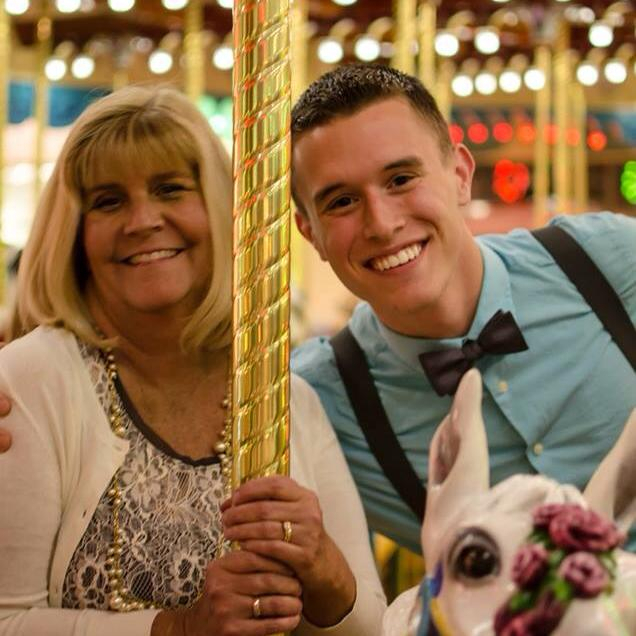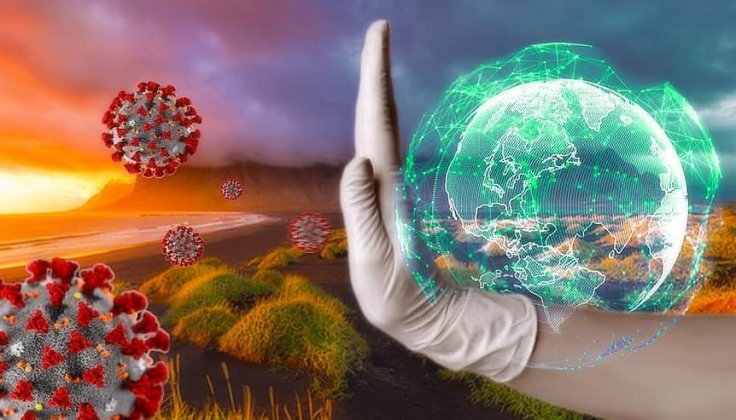The Coronavirus situation in the US is getting worse, with the number of COVID-19 deaths in the nation crossed 250,000 on Wednesday, November 18. While a third Coronavirus wave brings a fresh surge in infections, it puts immense stress on the healthcare system affecting healthcare workers mentally as well as physically.
Dr. Dave Burkard, who works at Spectrum Health in Grand Rapids, Michigan almost two weeks ago woke up with fatigue, cough, and shortness of breath. The 28-year-old emergency medicine resident has been working through the pandemic but somehow after several months, he caught the disease.
He was surprised to see how his health has become after contracting the virus, even though he was healthy and active. Burkard said, "I tried to get up and make a sandwich at my counter and I was just so winded."
When the frontline worker was hospitalized, he posted a message on Facebook about the seriousness of the infection. Burkard wrote, "It is up to all of us to stop the spread of COVID. It does not just affect the old and frail; it affects all of us and we are all at risk of getting sick. Please wear your mask. Do your part to help us stop the spread."
Went Downhill
Burkard is not the first healthcare worker to become affected by the virus while helping others and many of them could not survive. In his case, the fever wouldn't break for two days. Then he started noticing some improvement but around the sixth day, his condition turned worse.
He told Today, "I just gradually went downhill, being able to do less and less and literally having to get back into bed and catch my breath." When the associate residency program director sent him a plus oximeter, it showed that Burkard's oxygen levels would drop just from sitting in bed.
He explained his situation saying, "When I would get up and walk around, I'd hit the mid-80s" and on day eight when he took a shower then put the pulse ox on "and I was standing at 82".
"To see me as the lonely patient sitting in a hospital room — wondering what was going to happen — is a hard place to be in especially for someone who is so used to taking care of people," said Burkard. He received supplemental oxygen, antiviral medication remdesivir, steroids, and convalescent plasma during his three-day stay at the hospital.

He returned home and is now hoping for a full recovery. After completing the isolation, he wants to return to work and help others during the health crisis. Burkard said watching people say goodbye to their loved ones affected by the COVID-19, is "heartbreaking".
"It's heartbreaking seeing someone gasp for air and prepare to get a breathing tube put in. It stinks and I think as physicians we take that home with us," he added. As per Burkard, each and everyone should take the disease seriously and if "we don't", then "it will affect all of us — it won't just affect the health care providers. It won't just affect the patients with COVID, it'll reach farther... We're saying from within the hospital, 'We need you to take this seriously.' So please, please listen to us."
Healthcare System During COVID-19 in the US
During a recent conversation, Mary Turner, the president of the Minnesota Nurses Association told President-elect Joe Biden about the hardships she and other healthcare workers are facing as infection cases surge across the country. Her description of the situation caused an emotional moment during a conference call Biden had with a handful of frontline workers from a theater in Wilmington.

Turner broke down in tears while talking about her experiences treating Coronavirus patients as an intensive care nurse at North Memorial Medical Center in Robbinsdale. She said, "I myself have held the hand of dying patients who are crying out for their family that they cannot see. I have taken care of co-workers as they fight for their lives on a ventilator, and knowing that they got sick because the hospital or their government has not protected them."
She also said that along with other nurses she is still reusing N95 respirator masks because the critical piece of personal protective equipment (PPE) remains in short supply. Turner said, "there has been such despair" among frontline workers over their working conditions and "the fact that the federal government has not been there" for them.
The health care workers on the frontlines of this pandemic are true heroes. Tune in as we thank them for their work and discuss how a Biden-Harris administration will support them. https://t.co/RpBLnot7Be
— Joe Biden (@JoeBiden) November 18, 2020









